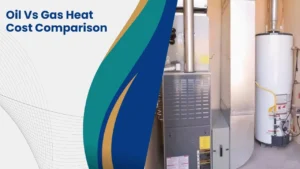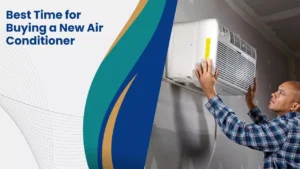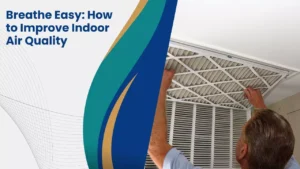As the seasons shift, it’s not just your wardrobe that needs adjusting – everything around you requires a little extra care to keep functioning smoothly. From swapping out light summer attire for cozy winter layers to slathering on sunscreen during scorching heat and applying loads of moisturizer in the dry, cold months, your self-care routine adapts to the weather’s demands.
But it’s not just personal upkeep that’s important. The appliances and systems in your home and office also require seasonal maintenance, emphasizing the one workhorse that operates year-round: your HVAC system. But how can you keep it in top shape throughout the year? Let’s learn some tips for each season to help you maintain your HVAC system effectively.
How To Maintain An HVAC System For Every Season
As the seasons shift, your HVAC system needs regular maintenance to function at its best all year round. Whether it’s handling the summer heat or the winter chill, keeping it in top shape is essential. Here are some simple HVAC maintenance tips for each season:
Winter
- It’s important to regularly check the exhaust vents for your furnace and water heater to make sure they are free from any obstructions like snow, ice, or debris. Blocked vents can result in a dangerous buildup of carbon monoxide.
- During the winter, running your ceiling fans in reverse on a low setting can help spread warm air throughout the room, taking some pressure off your heating system.
- In winter, the air inside your home can get really dry, which might make things less comfortable. To fix that, consider using a humidifier to keep the air nice and cozy.
- It’s important to get ready for winter storms, which might knock out power. One way to be ready is to buy a backup generator. That way, your heating and cooling system can keep running even if there’s an emergency.
Spring
- During spring, when there are more allergens and pollutants in the air, it’s super important to change your air filters every 1-3 months. This keeps the air inside your home clean and makes sure your heating and cooling system doesn’t have to work too hard.
- Take the time to clear any debris, leaves, or twigs that may have gathered around your outdoor unit during the winter. Maintaining a two-foot clearance around the unit is vital to ensure proper airflow.
- Remember to check your ductwork for holes or damage. Leaks can waste energy and make your system work less effectively. Use the right sealant to fix any leaks you find.
- Think about booking a pro to check and tune up your heating and cooling system in the spring. They’ll give it a good look-over, clean it up, and fix any minor problems before they turn into big ones. Doing this can help keep your system working great.
Summer
- Remember to keep your outdoor condenser coils clean to prevent dirt and debris from reducing your system’s efficiency. It’s important to monitor your refrigerant levels to prevent decreased cooling performance and potential damage to your HVAC system.
- Consider scheduling a professional check to ensure your refrigerant levels are where they should be.
- Additionally, make sure to check and recalibrate your thermostat for accurate temperature readings. If you want to maximize energy efficiency, consider investing in a programmable or smart thermostat.
- Finally, check to see if the fan blades on your outdoor unit are clean and balanced. If they’re not balanced properly, they can cause extra wear and tear on your system.
Fall
- Before cold weather arrives, cleaning and carefully inspecting your furnace for signs of wear or malfunction is essential. Remember to replace the air filter if it’s dirty or clogged.
- Your safety should always be a top priority. Test your carbon monoxide detectors and make sure to replace the batteries to ensure they are functioning properly.
- Take the time to examine your windows and doors for any drafts and seal any air leaks. Proper insulation will assist your HVAC system in maintaining a comfortable indoor temperature more efficiently.
- Before you actually need to use it, test your heating system to ensure that it’s in proper working condition. If you observe any issues, it’s best to contact a professional for a thorough inspection.
Additional Tip: Annual Checkup
No matter the time of year, it’s important to monitor your HVAC system closely for signs of trouble. Watch out for strange noises, sudden changes in your energy bills, or shifts in indoor air quality. Catching these issues early lets you deal with them quickly, stopping further damage and making your system last longer.
Summing Up: Keep Up With The Seasonal HVAC Checklist
Keep your HVAC system in top shape year-round with these simple tips for optimal performance. Not only will this provide peace of mind, but it’ll also lead to significant savings on your electricity bills. Maintaining your HVAC system doesn’t require advanced technical knowledge, making it accessible to everyone.
However, for more complex issues like sudden breakdowns in the middle of the night during scorching summers, or if you suspect your system needs maintenance, don’t hesitate to contact us at K2 Mechanical. Our expert team of technical consultants can swiftly address any cooling or heating system concerns you may have. Whether regular maintenance or urgent replacements, we’ve got you covered.





